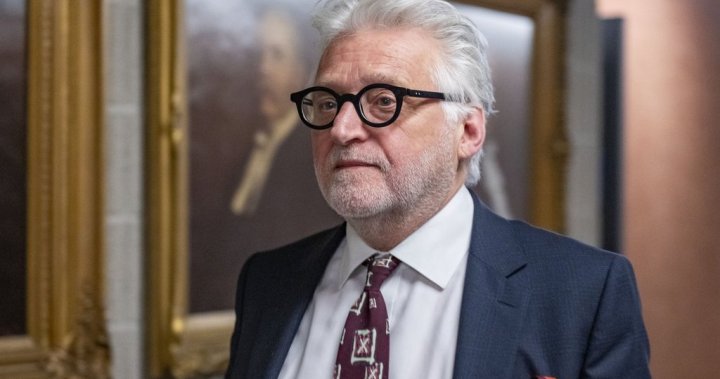In a courtroom thick with tension yesterday, Gilbert Rozon finally took the stand in the civil trial that has captured Montreal’s attention for weeks. The founder of our city’s iconic Just For Laughs festival faced questioning regarding allegations that have deeply divided the cultural community I’ve covered for nearly two decades.
“I never forced anyone,” Rozon testified, his voice steady but strained as he addressed the courtroom. The 69-year-old comedy mogul has consistently denied all allegations against him since they first emerged during the height of the #MeToo movement.
The scene at the Montreal courthouse was one of stark contrasts – supporters and critics separated by more than just the center aisle of the gallery. As a journalist who has documented the evolution of our festival from local celebration to global phenomenon, watching its founder defend himself was particularly poignant.
The plaintiffs, representing women seeking damages in this class-action lawsuit, listened intently as Rozon recounted his version of events. Their legal team has presented testimony from multiple women alleging misconduct spanning several decades.
What makes this case especially significant for our city is how deeply the Just For Laughs festival has woven itself into Montreal’s cultural identity. Since its founding in 1983, the festival has transformed from a small French-language event into an international juggernaut attracting top talent and tourists each summer.
“The impact of this trial extends far beyond one man,” noted cultural analyst Marie Deschamps, whom I spoke with after yesterday’s proceedings. “It represents a reckoning for institutions that have defined Montreal’s creative reputation globally.”
Court documents reveal claims dating back decades, with plaintiffs seeking compensation for alleged harm. Rozon’s defense team has challenged the validity of these claims, questioning the timing and circumstances surrounding the allegations.
The courthouse steps have become a makeshift forum for broader conversations about accountability in Quebec’s entertainment industry. I’ve witnessed protesters with signs in both French and English, highlighting the bilingual nature of this cultural moment.
Legal experts suggest this case could establish important precedents for similar claims. “Civil proceedings like this one operate on a different standard of proof than criminal trials,” explains McGill University law professor Jean Tremblay. “The question becomes one of preponderance of evidence rather than reasonable doubt.”
The trial continues next week with additional testimony expected from industry professionals who worked alongside Rozon during the festival’s rise to prominence. The proceedings have already revealed complicated power dynamics that existed behind our city’s most celebrated cultural export.
For many Montrealers I’ve interviewed, the case represents painful contradictions. The festival that brought laughter and economic benefits to our city now forces a community-wide reflection on how success can sometimes mask troubling behaviors.
“We all enjoyed those summer festivals,” longtime attendee Sophie Lavoie told me outside the courthouse. “Now we’re left wondering about what we didn’t see or chose not to see happening behind the scenes.”
The financial stakes are substantial – the plaintiffs seek significant damages, while Rozon’s legal team argues that many claims fall outside applicable limitation periods under Quebec law.
Whatever the outcome, this trial marks a watershed moment for Montreal’s cultural scene. The testimony has forced uncomfortable conversations in production offices and creative spaces throughout the city about power, consent, and accountability.
As someone who has chronicled Montreal’s cultural evolution for LCN.today, I can’t help but reflect on how this case highlights the complex intersection of art, commerce, and personal conduct in our city’s creative industries.
The courthouse will continue to draw crowds as testimony unfolds in coming days. For now, Montreal waits and watches as a man who once represented the pinnacle of our cultural success defends himself against serious allegations that have forever changed his legacy and our city’s most famous festival.







